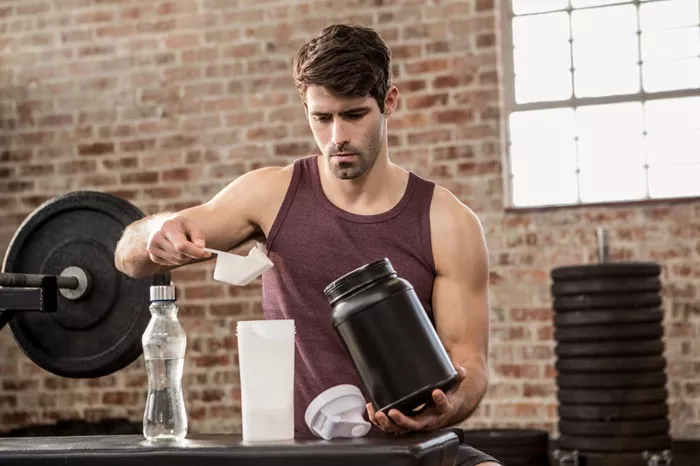Regular exercise is essential for maintaining good health, but physical activity increases the body’s demand for certain nutrients. Vitamins play a crucial role in energy production, muscle recovery, and overall performance. For men who work out, getting the right vitamins can make a significant difference in strength gains, endurance, and recovery time.
This article will cover the most important vitamins for active men, their benefits, food sources, and recommended dosages. We’ll also discuss how deficiencies can impact workout performance and which supplements may be worth considering.
Why Vitamins Matter for Men Who Exercise
Physical activity places stress on the body that increases nutritional needs. Vitamins help with:
- Energy production: Converting food into usable energy
- Muscle repair: Rebuilding tissue after workouts
- Immune function: Preventing illness from training stress
- Bone health: Supporting joints under heavy loads
- Testosterone production: Maintaining optimal hormone levels
Without adequate vitamin intake, men may experience fatigue, poor recovery, and suboptimal performance despite regular training.
Top Vitamins for Men Who Work Out
Vitamin D
Benefits for Exercise Performance
- Supports testosterone production
- Enhances muscle strength and recovery
- Improves bone density for heavy lifting
- Boosts immune function
Best Food Sources
- Fatty fish (salmon, mackerel)
- Egg yolks
- Fortified dairy products
Recommended Intake
600-800 IU daily (may need 2000-5000 IU if deficient)
B-Complex Vitamins
Key Benefits
- B1 (Thiamine): Helps convert carbs to energy
- B2 (Riboflavin): Supports red blood cell production
- B3 (Niacin): Aids in energy metabolism
- B6: Important for protein metabolism
- B12: Crucial for nerve function and energy
Best Food Sources
- Whole grains
- Lean meats
- Eggs
- Leafy greens
Recommended Intake
B-complex supplement or balanced diet with varied foods
Vitamin C
Exercise Benefits
- Powerful antioxidant reduces exercise-induced oxidative stress
- Supports collagen production for joint/tendon health
- Enhances iron absorption (important for oxygen transport)
- Boosts immune function during intense training
Best Food Sources
- Citrus fruits
- Bell peppers
- Broccoli
- Strawberries
Recommended Intake
90 mg daily (up to 200 mg for athletes)
Vitamin E
Benefits for Active Men
- Protects cell membranes from exercise-induced damage
- Supports cardiovascular health important for endurance
- May reduce muscle damage and soreness post-workout
Best Food Sources
- Nuts and seeds
- Spinach
- Avocados
- Vegetable oils
Recommended Intake
15 mg daily
Magnesium
Why It’s Crucial for Athletes
- Supports muscle contraction and relaxation
- Helps convert food into energy
- Reduces exercise-related cramps
- Improves sleep quality for recovery
Best Food Sources
- Dark leafy greens
- Nuts and seeds
- Whole grains
- Dark chocolate
Recommended Intake
400-420 mg daily
Additional Important Nutrients
Omega-3 Fatty Acids
- Reduce exercise-induced inflammation
- Support joint health
- May enhance muscle protein synthesis
Zinc
- Supports testosterone production
- Aids in protein synthesis
- Boosts immune function
Coenzyme Q10
- Improves cellular energy production
- Acts as powerful antioxidant
- May enhance exercise performance
Signs of Vitamin Deficiencies in Active Men
Watch for these symptoms that may indicate vitamin shortages:
- Persistent fatigue despite adequate rest
- Slow recovery between workouts
- Frequent illnesses or infections
- Muscle cramps or weakness
- Poor sleep quality
- Decreased strength or endurance gains
Best Ways to Get These Vitamins
Through Diet
Focus on eating:
- Lean proteins (chicken, fish, eggs)
- Colorful fruits and vegetables
- Whole grains
- Nuts and seeds
- Healthy fats (avocados, olive oil)
Through Supplements
Consider supplements if:
- You have dietary restrictions
- Blood tests show deficiencies
- You train at high intensity levels
Common Mistakes to Avoid
- Megadosing vitamins: More isn’t always better and can be harmful
- Ignoring food sources: Supplements should complement, not replace, a good diet
- Focusing only on protein: Vitamins are equally important for performance
- Not testing for deficiencies: Blood work can identify specific needs
When to See a Doctor
Consult a healthcare provider if you experience:
- Persistent fatigue despite proper nutrition
- Symptoms that suggest vitamin deficiencies
- Digestive issues affecting nutrient absorption
- Plans to take high-dose supplements
Conclusion
The right vitamin intake can significantly enhance workout performance, recovery, and overall health for active men. While a balanced diet should provide most essential nutrients, some men may benefit from targeted supplementation based on their individual needs and training demands.
By ensuring adequate intake of these key vitamins, men can optimize their physical performance, reduce recovery time, and maintain long-term health. Remember that vitamins work synergistically, so focusing on overall nutrition is more important than any single nutrient.
For men serious about their fitness goals, paying attention to vitamin intake can provide that extra edge in performance and results.
Related topics:
10 Best Testosterone Booster For Men Over 50
The 7 Best Testosterone Booster For Males Over 60
Top 5 Male Testosterone Boosters Of 2024: A Comprehensive Guide


